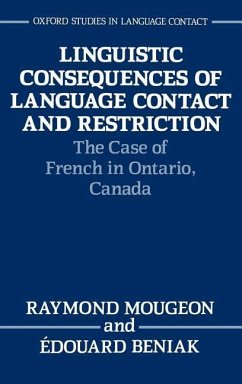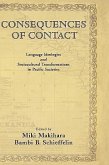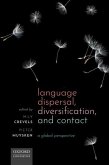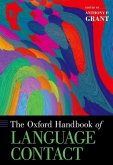The description of minority or threatened languages with a view to documenting the linguistic consequences of language contact and restriction has now emerged as a distinct area of investigation within sociolinguistics. In this book, Raymond Mougeon and Edouard Beniak present a series of analyses of the impact that contact with English on the one hand, and language-use restriction on the other, have had on the evolution of the French dialect spoken in the predominantly English-speaking province of Ontario, Canada. As a background to the analyses, the authors provide sociohistorical and sociolinguistic information on the Franco-Ontarian community, and make comparisons with other varieties of French both within and outside North America. They address fundamental theoretical issues such as the interplay between linguistic and extralinguistic causes of structural change and the mechanisms of linguistic change in bilingual as opposed to unilingual speech communities.
This study of minority languages documents the linguistic consequences of contact and restriction. First providing sociohistorical and sociolinguistic backgrounds, the book analyzes the effect contact with English and language-use restriction has had on the evolution of the French dialect spoken in predominately English-speaking Ontario, Canada. Addressing such fundamental theoretical issues as the interplay between linguistic and extralinguistic causes of structural change and the mechanisms of linguistic change in bilingual communities, this work will appeal to linguists interested in language contact and linguistic change.
This study of minority languages documents the linguistic consequences of contact and restriction. First providing sociohistorical and sociolinguistic backgrounds, the book analyzes the effect contact with English and language-use restriction has had on the evolution of the French dialect spoken in predominately English-speaking Ontario, Canada. Addressing such fundamental theoretical issues as the interplay between linguistic and extralinguistic causes of structural change and the mechanisms of linguistic change in bilingual communities, this work will appeal to linguists interested in language contact and linguistic change.








